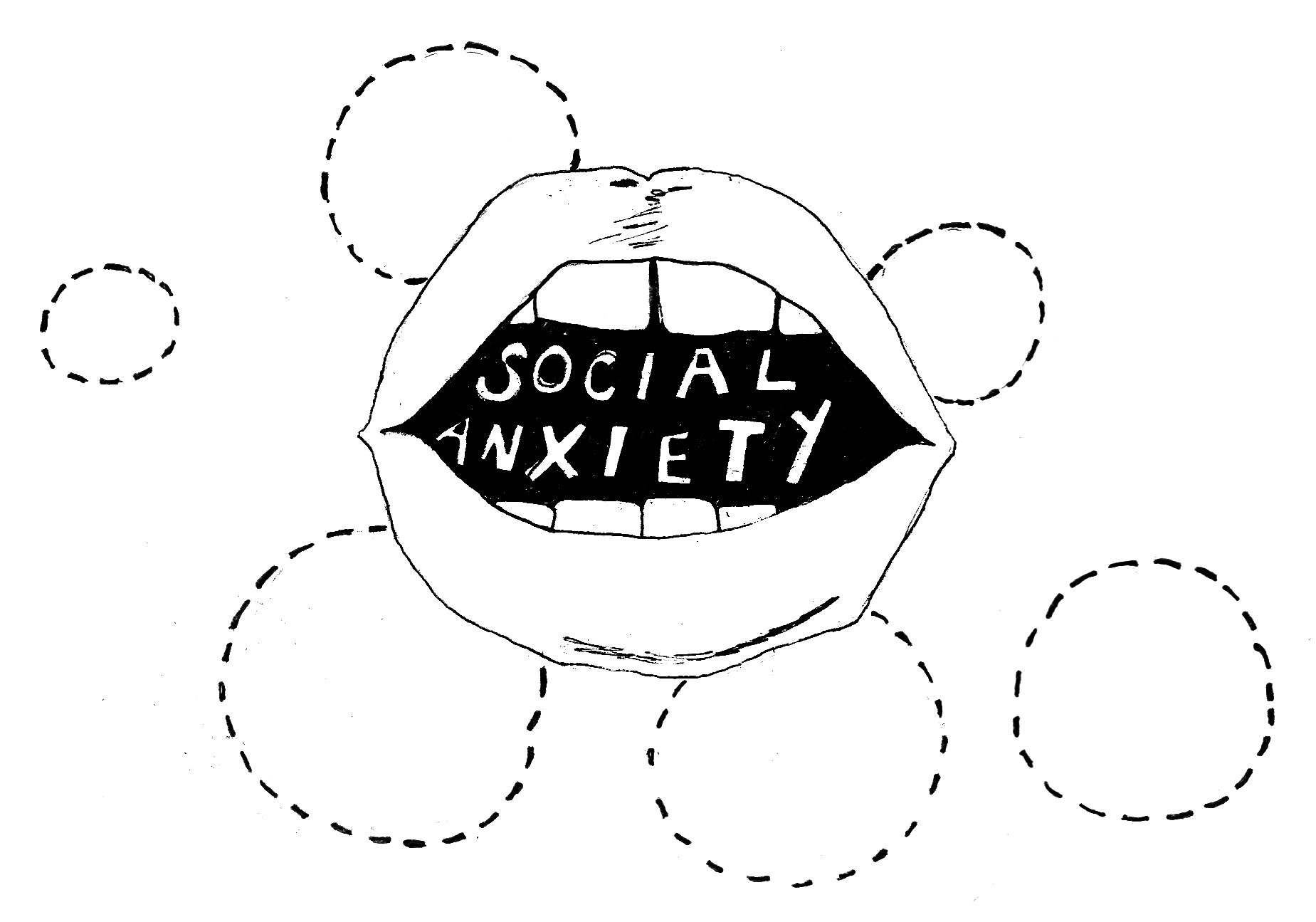Ode to Alone(liness): campus engagement and anxiety
April 26, 2017
 This
piece represents the opinion of the author
.
This
piece represents the opinion of the author
.
A few months ago, I wrote an article about my experiences navigating small talk at Bowdoin. The tenor of that article was focused on the function of small talk as a mechanism of forming solidarity: Bowdoin students use small talk to commiserate over shared experiences. Small talk then serves as a springboard for greater and more meaningful connections.
As an individual with social anxiety, however, navigating these obligatory forms of social pageantry often results in my avoidance of small talk altogether. These small talk scenarios are awkward and anxiety-provoking. Individuals with social anxiety thus often feel excluded from these typical conversations, which can sometimes lead to feelings of loneliness.
In general, people tend to put too much pressure on themselves when engaging in small talk. Instead of outwardly focusing and listening to the other person, we are often hindered by stressful ideas that we must be funny, interesting and/or entertaining.
When I am making small talk, I am often preoccupied with thoughts concerning how I am being perceived by the person I’m talking to.
I often consider my social anxiety to be somewhat identity based: my identity is often at the center of my attention, thus influencing the way I comport myself. For instance, when having a casual conversation with an acquaintance, I find myself hung up on how my identity is being perceived by the other person, and not on the actual conversation.
The nature of such conversations is, at least on my part, ostensibly scripted.
Nevertheless, my identity has often hinged upon feelings of anxiety, which in turn has produced feelings of undesirability. I’ve realized that being gregarious is not only conducive to having a part of the Bowdoin social scene, but it also serves as a means of not feeling excluded or lonely.
There is an (unspoken) Bowdoin social standard, that places friendliness and outgoingness on pedestals. We have a tendency to attach some measure of social success to these virtues. The notion of being alone or refraining from social engagement is antithetical to the Bowdoin standard of community.
Interestingly, Bowdoin is the first place where I have never managed to be alone (roommates and a small school with limited study spaces will do that). Nonetheless, it is a place where I have too often managed to feel lonely.
Loneliness appears to have a reciprocal relationship with social anxiety. Once again, social anxiety is a condition in which an individual has an excessive and arbitrary fear of social situations and interactions. Therefore, social anxiety is known to facilitate loneliness, but this loneliness also increases social anxiety. It becomes difficult to form friendships when people interpret your general fear of social interactions as personal dislike or loathing—people begin to pull away.
This vicious cycle stymies the formation of many friendships for individuals who have social anxiety.
As the semester comes to an end, these past few weeks have been somewhat devoted to self-reflection. I’ve accepted that it is rather difficult, sometimes, to simultaneously deal with social anxiety and thrive in the Bowdoin social scene. In these moments of difficulty, I have realized the importance of alone time: I have learned to embrace and cultivate, in doses, these necessary moments. At Bowdoin, we tend to pillar the concept of engagement.
While being engaged with both the community and our fellow peers is invaluable, we must not forget that engaging with ourselves is equally valuable.


Comments
Before submitting a comment, please review our comment policy. Some key points from the policy: